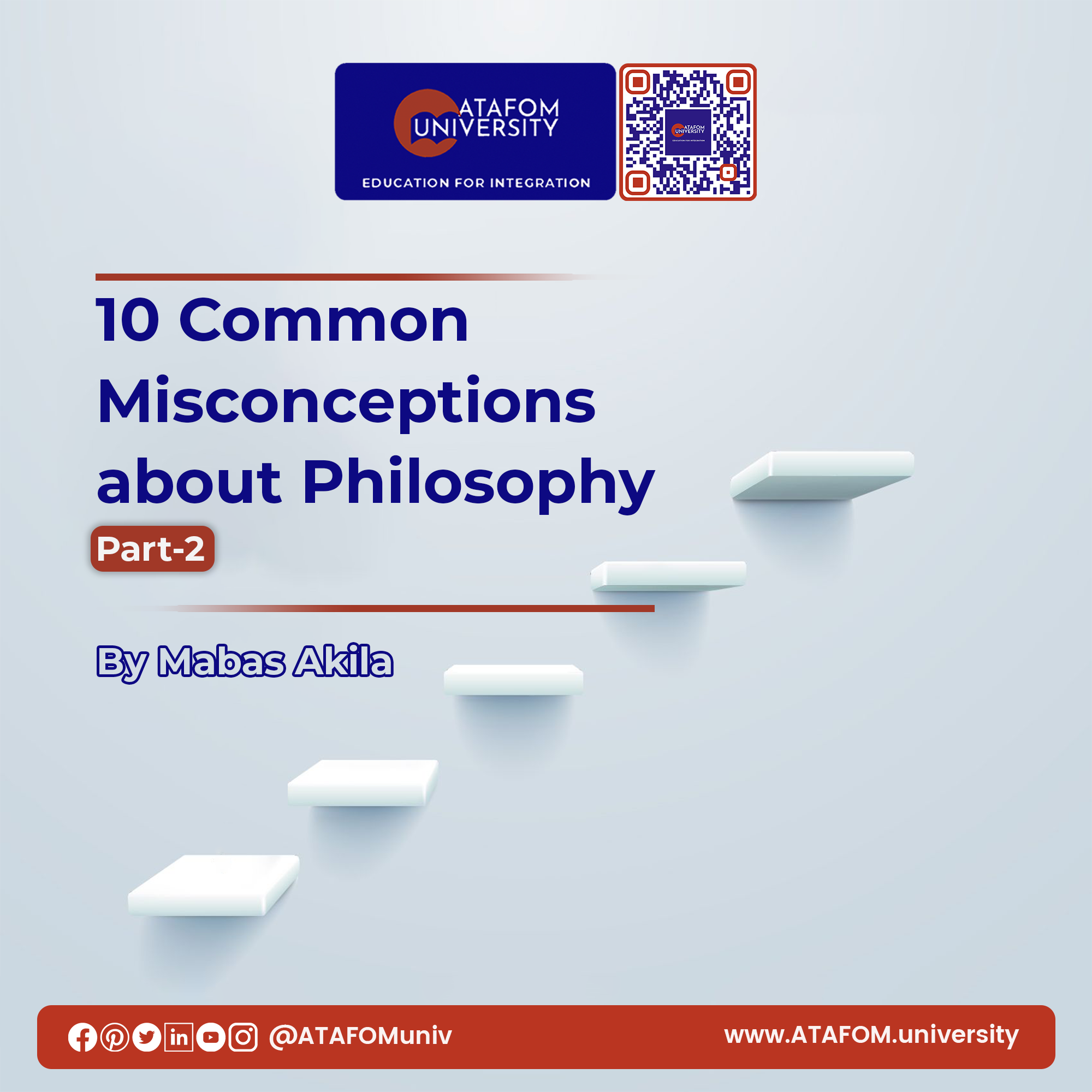The last time out, we started on four misconceptions about philosophy. We must reiterate that ATAFOM University gives you great philosophical insights regardless of the discipline you choose. We seek to expose you to the rudiments of knowledge in your field of study and teach you critical thinking in it. In this concluding part, we will be considering the rest of the six (6) misconceptions.
Studying philosophy means rejecting to acquire wealth: It is not necessarily true that studying philosophy means rejecting the acquisition of wealth. Although many presume that philosophers are synonymous with wilful destitution, there are many who have had successful careers and have achieved stability. Thinking about issues related to reality, existence, knowledge, values and reason is not a sacrifice of material wealth. It is just that some philosophers prioritise other values over financial success.
Philosophy is an awkward field and the students are usually weird: Students of philosophy come from different walks of life and have a wide range of interests and personalities. Since it is a field that encourages curiosity, open-mindedness and creativity, it naturally attracts a diverse group of people. Like any other discipline, there will be a range of personalities among philosophy students. It will be a wrong impression to make generalisations about the students of a particular field based on stereotypes or prejudices.
Philosophy shouldn’t be studied, it is innate or learned: Some think that studying philosophy is futile because it is a gift and rather that we are all capable of engaging in philosophical reflections without formal training. Others however think it is a discipline and skill that can be developed through study. Both of these perspectives have some validity, and it is possible to approach the field from either perspective. While some may find that they enjoy philosophical thinking and may want to pursue it more formally through study, others may prefer to engage in philosophical reflection informally or on their own. It is up to the individual to decide.
Philosophers are practically jobless: It is true that this field of study does not enjoy a high employment rate, however, many philosophers are able to find relevance in academia, think tanks and other organisations where their skills and knowledge are valued. Some work as independent writers while others find employment in fields that are related but not strictly philosophical in nature such as education, law and journalism.
All philosophical statements are full of wisdom and should guide our way of life: Philosophy is a diverse field and not all statements may be applicable or relevant to everybody. It is often important to consider the context and perspective from which a philosophical statement is made and to think critically on the implications and how it aligns with your own values and beliefs. It is also important to remember that no matter how universal a philosophical statement could be, it cannot fully capture the complexity of the human experience. It will be necessary to draw from a variety of sources and approaches in order to gain a well-rounded understanding of the world.
Philosophical arguments are based on personal opinions of the philosopher. That they are not scientifically proven to be true, neither are they tested and empirical: While philosophers are certainly entitled to their own personal belief and opinions, philosophical arguments are typically based on logical reasoning and critical thinking. These arguments are designed to be as objective and unbiased as possible, and are often rigorously tested and debated by other philosophers in order to determine their validity. It is true that most philosophies are not subject to the same empirical testing as scientific theories, but they are still based on evidence and logical principles and can be evaluated on their merits.
Hopefully, after this read, you have changed your perception about what philosophy is all about, who philosophers are and what they do because you are also one of them.


